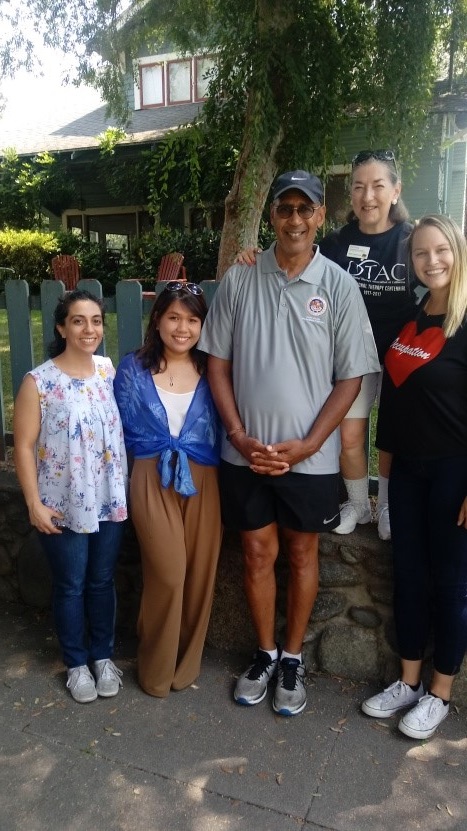Perks of OTA Leadership
Leadership can be a fun and flourishing experience for any student or practitioner. While leadership can take many forms, official leadership positions can help individuals create positive change. Leadership roles allow occupational therapy assistant (OTA) students to gain professional skills, increase awareness of the OTA role and value, and find new ways to create a positive change for the profession. With so many choices for OTAs to enter leadership roles, the opportunities are endless.
As valued members of the profession, OTAs bring a new perspective through their unique roles; examples include often acting as the liaison between the health care team and family, and on some occasions having the initial client interaction (if the initial evaluations were done by an occupational therapist elsewhere). By being at the forefront of the health care team, OTAs also discover improvements for interventions and client relationships.
From a broader perspective, OTAs may understand what policy improvements can create a greater, more inclusive profession. As a leader, one may advocate for amending legislative statutes influencing the profession, or increasing access to resources such networking opportunities for OTA students and clinicians, as well as the OTA-specific content available for professional development.
OTA students and clinicians have the opportunity to make a major impact on the profession by participating in their student, state, or national associations as community leaders. Participating in leadership typically starts at the student level. As students learn leadership skills and understand the value of networking, they create a better future for themselves and the profession. Being heavily involved in professional growth helps OTAs demonstrate how they can lead teams, be directors, or take on almost any qualifying leadership role on any state, student, or national board. As a member of the Assembly of Student Delegates Steering Committee, I am fortunate to represent the OTA experience by participating in discussion panels and online posts and being part of an overall exceptional team of student leaders. This experience has helped me create links with other students and future practitioners who will be important to work with as colleagues.
Developing professional skills is not the only benefit of involvement. By being present in these roles, OTAs help improve diversity in leadership positions by bringing awareness to what and how OTAs contribute to the profession, which is the ultimate benefit of being in leadership. OTAs exemplify that they are an integral part of the team by performing treatment in a fast-paced environment, displaying vast knowledge about the occupational therapy process and intervention, and demonstrating the ability to collaborate with multiple practitioners, all while facilitating a positive therapeutic relationship with the client. OTAs increase their knowledge by juggling various caseloads of clients, working with multiple OTs, and at times helping clinicians who are entering the field. When OTAs allow OT students to shadow and observe them, they have the opportunity to showcase this expertise and unique skills.
OTA student leaders’ involvement in the community also allows others to become aware of the OTA role, so community members can see the distinct value of all occupational therapy practitioners. For example, I was my school’s state association student delegate. By being involved in several events, I made connections and engaged in professional activities such as our annual state conference and legislative reception. One of our state regional directors emailed me about an opportunity to advocate for the profession at a local politician’s event. I was able to attend with two OT students, and we educated the local residents about OT and the benefits of our profession!
OTA students and clinicians have many options when it comes to leadership roles. OTAs can be involved in their Student Occupational Therapy Association (SOTA), represent their school as a delegate to their state OT association or the Assembly of Student Delegates (ASD), or run for any position (except OT Chairperson) on the ASD Steering Committee. If your program does not yet have a student delegate or SOTA, you can create one! Check out the SOTA handbook. You can request a copy of the SOTA handbook by emailing asd@aota.org.
Leadership can be a fun and fulfilling experience, and the OTA role creates a great chance for the student or clinician to spread awareness of and make a difference in the profession. As the profession faces new challenges, OTAs have a duty to bring their thoughts and concerns to the forefront, and what better way than being involved in professional growth?

Photo Caption (left to right): OTAC Student Delegates Sherry Younesi, Bethrese Padini, and Carly Roberts; and OTAC member Katie Gundersen attend Assembly member Chris Holdens' Block Party to promote occupational therapy in Pasadena, California.